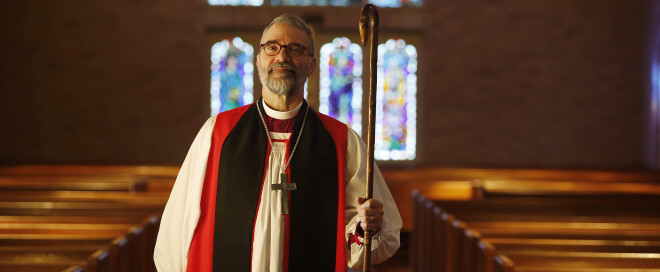Three (Bad) Spiritual Laws

The great modern theologian Karl Barth said we should have the Bible in one hand and the newspaper in the other. There is something of this in the Gospel for the Sunday after the Ascension, where the contrast between the protection offered by the ascended Lord, and the world, is pronounced. This meditation is the result of this same stereoscopic view, the corruption of our contemporary world in contrast to the vision of God Jesus offers.
Insinuation. We may want to blame evil on an outside force, and I believe such exist, but when we observe how evil operates, we are not left without blame. Evil insinuates itself into the fissures which our own anger or ‘desire to dominate’ (Augustine) open up. Let me offer a secular analogy: a foreign power uses our own division and hostility politically to provoke and incite by deception. The serpent uses a selfish or irritable spot in Adam or Eve, but where that flaw comes from is a mystery.
Amplification. The medieval poet Dante in describing the sins found in the descending circles of Hell used a technique called ‘contrapasso.’ By this is meant that the punishments are but the extension of what fallen humans themselves want, but now taken to an extreme. What they desired turned out to be the opposite of what they supposed, punishment and not bliss. The outworking of our outsized desires or self-image proves to be our own chosen dungeon.
Disorder. Some suppose that inducing chaos is the fertile ground for creativity, but it turns out to be no such thing. The disorder without only mirrors the disorder within. Paul tells us that ours is a ‘God of order (I Cor. 14:33),’ that of creation and redemption. In this as in the prior two laws, evil can at best mimic the good, but it is not of itself creative, since sin has itself no real substance.
Given this mimicking feature in evil, it should not surprise us that the work of the Holy Spirit is parallel yet opposite. The Spirit uses the openings found in our own feeble efforts, amplifies them for a wider good we could not have imagined, and thereby creates an order, a framework, in which we and others can abide, and thrive, even in the midst, for now, of what Jesus calls ‘the world.’



